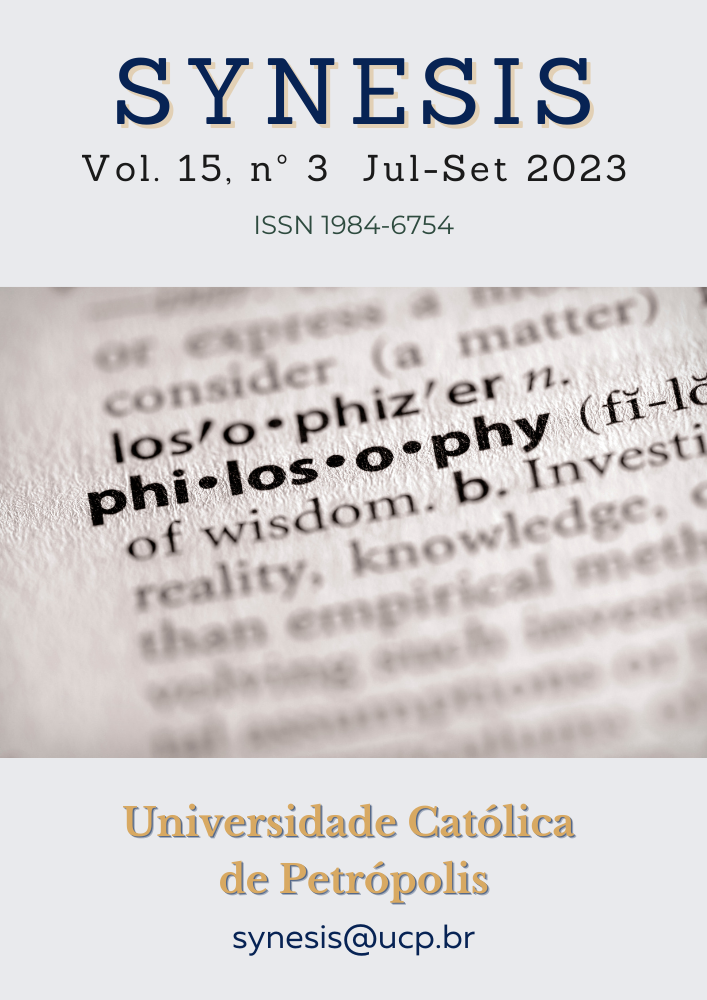Abstract
This article analyzes the phenomenon of knowledge management in the knowledge society, examines its importance in the university management system and evaluates its impact on the quality of teaching. A theoretical analysis of the essence of knowledge management has been carried out, the features of the processes of transfer and dissemination of knowledge at the present time have been determined, trends in the development of education and their relationship with knowledge management have been considered. The conceptual foundations of knowledge management in higher education are substantiated and the conditions for its implementation in the university are determined. The proposed methodology, which includes an experimental study to test the hypothesis and implement the concept of knowledge management in the educational process of higher education.
References
Andrushchenko, V. P. (1996). Modern social philosophy: a course of lectures. Genesis, 368.
Asarta, C.J., & Schmidt, J.R. (2020). The effects of online and blended experience on outcomes in a blended learning environment. The Internet and Higher Education, 44, 100708.
Bao, W. (2020). COVID‐19 and online teaching in higher education: A case study of Peking Higher education institution. Human Behavior and Emerging Technologies, 2(2), 113‒115.
Barabanshchikov, A.V. (1981). Problems of pedagogical culture of university teachers. To the question of the essence of pedagogical culture. Soviet pedagogy. No. 1, 71–77.
Bondar, V. I. (2000). Theory and technology of managing the learning process at school. Schoolboy, 191.
Bodalоv, A.A. (1995). Personality and society: selection. psychol. work. Рed. academy, 328 .
Dang, Y. M., Zhang, Y. G., Ravindran, S., & Osmonbekov, T. (2016). Examining student satisfaction and gender differences in technology-supported, blended learning. Journal of Information Systems Education,27(2), 119.
Goudeau, S., Sanrey, C., Stanczak, A., Manstead, A., & Darnon, C. (2021). Why lockdown and distance learning during the COVID-19 pandemic are likely to increase the social class achievement gap. Nature Human Behaviour,5(10), 1273-1281.
Graham, C.R. (2009). Blended learning models. In Encyclopedia of Information Science and Technology. Second Edition (pp.375‒382).
Graham, C.R. (2013). Emerging practice and research in blended learning. In Handbook of distance education (pp.351‒368).
Graham, C.R. (2018). Current research in blended learning. Handbook of distance education, 173‒188. https://www.taylorfrancis.com/chapters/edit/10.4324/9781315296135-15/current-research-blended-learning-charles-graham
Hrastinski, S. (2019). What do we mean by blended learning? TechTrends, 63(5), 564‒569.
Kim, C., Kim, M.K., Lee, C., Spector, J.M., & DeMeester, K. (2013). Teacher beliefs and technology integration. Teaching and teacher education, 29, 76‒85.
Kirkwood, A., & Price, L. (2013). Examining some assumptions and limitations of research on the effects of emerging technologies for teaching and learning in higher education. British Journal of Educational Technology, 44(4), 536‒543.
Kopcha, T.J., Ding, L., Neumann, K.L., & Choi, I. (2016). Teaching technology integration to k-12 educators: A ‘Gamified’approach. TechTrends, 60(1), 62‒69.
Vvedensky, V. N. (2006). The teaching profession as a social institution. Pedagogy, No. 2, 62–66.
Kuzmina, N. V. (1990). Professionalism of the personality of the teacher and master of industrial training. Higher school, 119.
Smith, K., & Hill, J. (2019). Defining the nature of blended learning through its depiction in current research. Higher Education Research & Development, 38(2), 383‒397.
Subhash, S., & Cudney, E.A. (2018). Gamified learning in higher education: A systematic review of the literature. Computers in human behavior, 87, 192‒206.
Thai, N.T.T., De Wever, B., & Valcke, M. (2017). The impact of a flipped classroom design on learning performance in higher education: Looking for the best “blend” of lectures and guiding questions with feedback. Computers & Education, 107, 113‒126.
Tirziu, A.M., & Vrabie, C. (2015). Education 2.0: E-learning methods. Procedia-Social and Behavioral Sciences, 186, 376‒380.
Raven, A., & Park, C. W. (2015). Information quality as a determinant of task-technology fit in using communication technology for simple task. Issues in Information Systems,16(1).
Zhang, Z., Li, Z., Han, M., Su, Z., Li, W., & Pan, Z. (2021). An augmented reality-based multimedia environment for experimental education. Multimedia Tools and Applications, 80(1), 575-590

This work is licensed under a Creative Commons Attribution-NonCommercial-NoDerivatives 4.0 International License.
Copyright (c) 2023 Synesis (ISSN 1984-6754)
